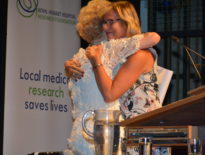
Taxation of Trusts

There has been a lot of discussion of late about the tax treatment of trusts. The ATO estimates that there are some 800,000 Trusts in operation in Australia, with total assets around $3 trillion. With that sort of size, it was only a matter of time before one of the parties decided to focus on them. However, ATO statistics also reveal rather moderate growth of less than 2% per year between 2010 to 2015, so maybe the horse has bolted?
What are Trusts?
Trusts have been around since the 12th Century when Crusaders transferred ownership of their lands in trust so that their estates could be managed in their absence whilst they were fighting in the holy lands*. There are many different types of trusts ranging from fixed trusts where the units are as they say ‘fixed’, through to discretionary trusts where there exists discretion for the trustee to distribute the income and assets of the trust as they choose. It is this latter style of trust that has grabbed the media attention of late.
Trusts themselves do not pay tax, the net income of a trust needs to be distributed to the beneficiaries of the trust. This is where trustees often take advantage of beneficiaries at lower rates of personal tax such as adult children at university, which potentially can save thousands of dollars in tax.
Other reasons to use them?
Whilst it is correct that discretionary trusts assist with tax minimisation, WLF also typically recommends them for our clients as a vital succession planning and asset protection tool. Most family trust deeds are flexible in their operation and can provide for good estate management, allowing for assets to benefit generations without the need for ownership to change from one individual to the next. Trusts can also be used for asset protection to retain wealth within a family group. For example, with the recent rising houses prices a parent may choose to acquire a unit for their child in a trust which allows the child to live in it but the ownership and control still resides in the trust.
Proposed changes
Labor’s policy is to tax discretionary trusts like companies at 30%. There are some exceptions for unit trusts, farms, charitable, disability and philanthropic trusts – which would be exempt. Whilst WLF does not endorse nor oppose this policy there are many valid reasons for having family trusts and they are not simply a vehicle for the rich and famous. Many of our small business clients operate their businesses from them. In fact, the introduction of a flat tax on trusts could favour the ‘rich’ as they are most likely already utilising corporate ‘bucket companies’ to the detriment of middle income earners. For example, take a business owner who operates a trust with profits of say $100,000 to which they distribute to only one individual beneficiary. Normally they would be taxed on this amount at $24,632, however under the proposed rules they would get a tax hike by $5,368 to $30,000.
The tax system as a whole
The current top marginal tax rate kicks in for individuals earning over $180,000 at 47% (including the Medicare Surcharge). By worldwide standards the threshold where this kicks in is high. Labor’s policy is to permanently lift the rate upwards to 49.5%. This is at odds with the Coalition’s progressive lowering of the company tax for companies with $50 million of turnover or less to a rate of 25%, which leaves a massive gap of some 24.5% between the company and individual rates. This distortion needs more attention from our politicians and thought leaders.
Concluding thoughts
With recent changes to super contribution limits and concessions, trusts are going to be even more popular, but careful planning needs to be considered before setting one up given the proposed changes. In 2010, the Henry Review recommended that the system be reviewed as a whole in terms of efficiency, equity and simplicity and not in piecemeal parts. By tweaking individual parts of the system, we question what impact this will have on the other parts of the tax system.
As the topic evolves we will provide further updates. In the interim, if you would like to discuss with us further please feel free to contact us.
Paul Lyons
* – SMH, 15 Aug 2017, M Newham

